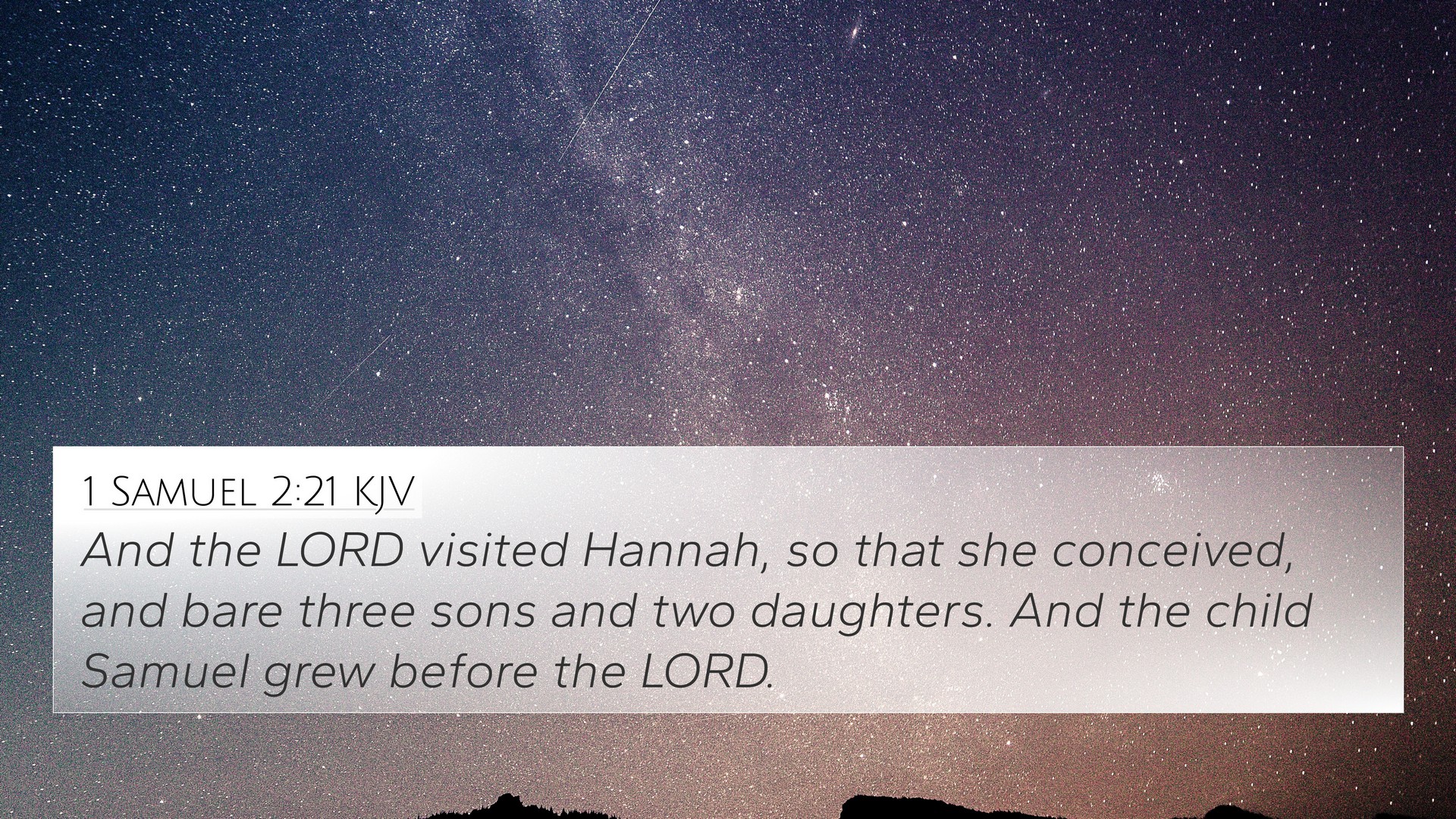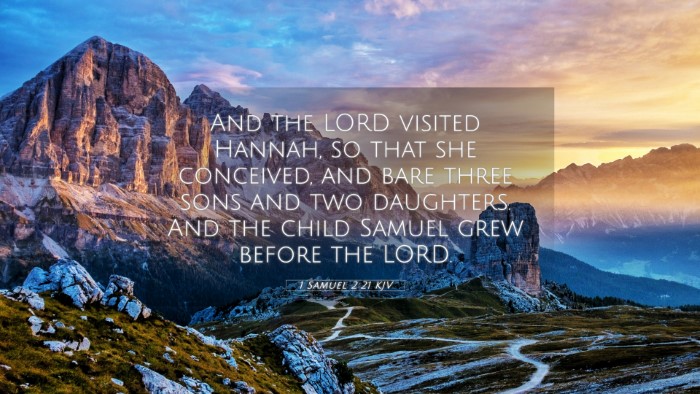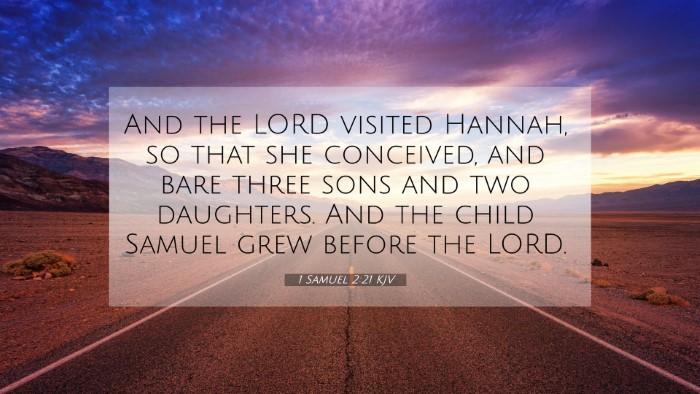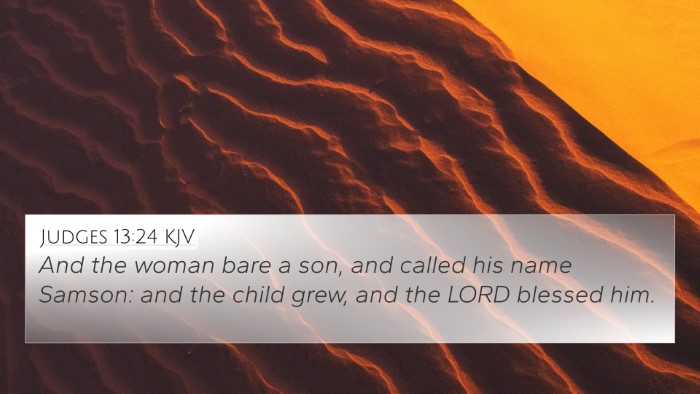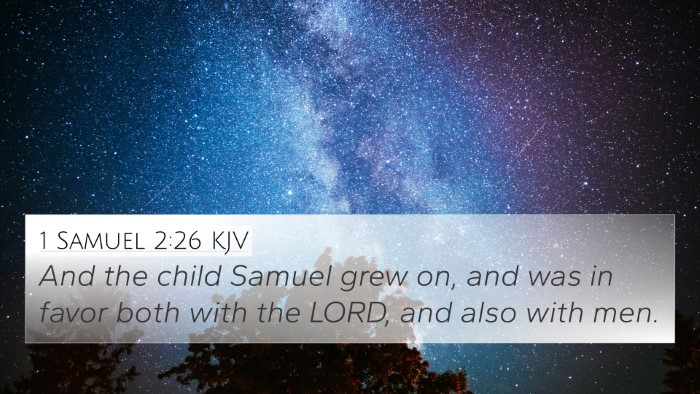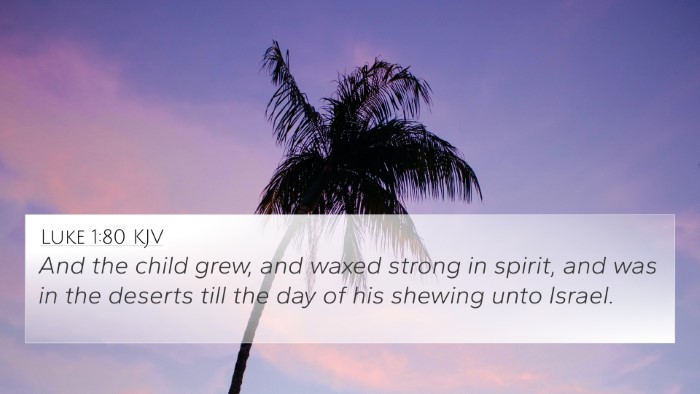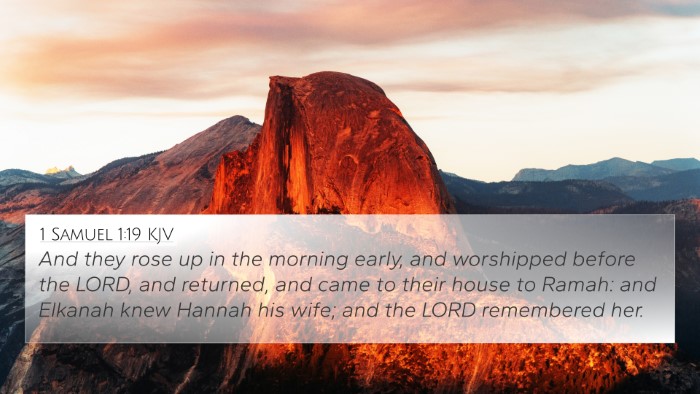Understanding 1 Samuel 2:21
1 Samuel 2:21 reads: "And the Lord visited Hannah, so that she conceived, and bare three sons and two daughters. And the child Samuel grew before the Lord." This verse encapsulates profound themes of divine blessing, faithful service, and spiritual growth. Various public domain commentaries provide insights that help us understand its deeper meanings.
Contextual Background
This verse is set in the narrative of Hannah, the mother of Samuel, who fervently prayed for a child. God answered her prayers, showcasing His power and grace. Samuel, in turn, would grow to be a significant figure in Israel’s history as a prophet and judge. The act of bearing children after years of barrenness symbolizes God’s favor and reward for Hannah's faithfulness.
Commentary Insights
The following insights from various commentaries shed light on the meaning of this verse:
-
Matthew Henry:
Henry notes the divine providence in Hannah's life. The verse illustrates God's blessing not only in granting her original request for a son but also in providing additional children. This symbolizes the abundance of God's goodness and His recognition of faithful prayer.
-
Albert Barnes:
Barnes emphasizes the importance of God's provision as a response to Hannah’s prayers and vows. He interprets the five additional children as a reflection of Samuel’s significance to God’s plans, indicating that Samuel’s growth is intertwined with the blessings bestowed upon his mother.
-
Adam Clarke:
Clarke highlights the spiritual significance of Samuel growing "before the Lord." This signifies being under God's watchful eye, implying that Samuel's life is dedicated to God's service. He further discusses Hannah's faith, suggesting that her promise to dedicate Samuel to God established a foundation for his future ministry.
Thematic Connections
1 Samuel 2:21 demonstrates several biblical themes:
- Divine Favor: Hannah's experience reflects divine favor in response to prayer.
- Faithfulness: Hannah's dedication of Samuel underscores the theme of commitment to God.
- Blessings of Progeny: The birth of additional children symbolizes God’s abundant blessings.
- Spiritual Growth: Samuel’s growth presents a model for faithful living and service to God.
Bible Cross-References
For deeper understanding and comparative analysis, several cross-references can be drawn from this verse:
- 1 Samuel 1:20 - The initial mention of Hannah's supplication and God's answer.
- Psalms 113:9 - God making the barren woman a joyful mother of children.
- Genesis 30:22-24 - The Lord remembering Rachel and giving her children.
- 1 Chronicles 6:28 - The lineage and significance of Samuel in Israel’s history.
- Luke 1:13-15 - Angel's announcement to Zechariah about John the Baptist's birth.
- Galatians 4:27 - Reference to the barren one being fruitful.
- 1 Samuel 3:19 - God’s continued presence and favor upon Samuel as he grows.
Tools for Bible Cross-Referencing
To explore the connections between Bible verses, various tools and strategies are valuable:
- Bible Concordance: A helpful resource for finding themes and related verses.
- Cross-Reference Bible Study: Engage in systematic study to identify linked scriptures.
- Bible Reference Resources: Use collections and guides that list parallels and thematic studies.
- Comprehensive Bible Cross-Reference Materials: Look for annotated Bibles with detailed notes on cross-references.
Conclusion
1 Samuel 2:21 is a rich verse infused with meaning regarding God’s faithfulness, the value of prayer, and spiritual growth. The insights derived from public domain commentaries reveal that this verse not only celebrates Hannah’s joy but also invites readers to reflect on their spiritual journeys and the principles of divine blessing. By employing cross-referencing methods, one can discover robust connections throughout the Bible, fostering an enriched understanding of scripture.
